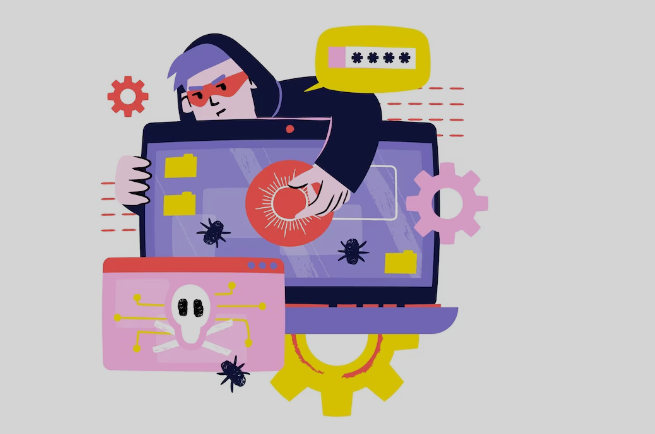According to Verizon’s data breach report, 89% of cyber attacks aim to gain financial incentives. The other 11% of attacks happen to get some form of leverage through espionage.
Also known as cyber spying, such malicious attempts target businesses and governments. The goal is to access sensitive information, classified data, or intellectual property for various benefits.
Main tactics used in cyber espionage
Cyber espionage targets and exploits the exclusive nature and anonymity of information networks. As technology advances, hackers are becoming sophisticated, meaning their tactics are diversifying.
In general, their methods include:
- Supply chain attacks. Supply chain attacks target systems rather than networks. Hackers first infiltrate an organization’s outside provider to get access to the data.
- Watering hole attacks. Watering hole attacks involve compromising legitimate websites in high-valued industries with malware. The aim is to trick people into accessing a bad site. The goal is to hack an organization’s network by injecting harmful software into users’ computers.
- Spear phishing attacks. Spear phishing is a customized form of cyber espionage. The method targets high-profile people via email messages that look legitimate. The goal is to make recipients share personal information. This approach allows attackers to access their credit card details or passwords.
- Zero-day vulnerabilities. A zero-day vulnerability is a tactic used to exploit software flaws overlooked by security teams. It involves implementing malicious code into the software before developers can get a chance to fix it.
How to prevent cyber espionage
Cyber espionage aims to be undetectable from start to end. Perpetrators generally use extreme measures to conceal their motives, identities, and actions. As a result, business leaders must pay attention to how they perceive their organization’s cybersecurity.
In 2020, a nation-state attack targeted several businesses and government agencies in the US. Leading software company SolarWinds got hacked, exposing nearly 18,000 SolarWinds customers, including several US government agencies. The hack compromised systems, data, and networks via a masqued software update.
A supply chain attack was the method used to conduct the attack. It involved inserting malicious code into SolarWinds’s Orion system. To prevent such attacks, every organization should implement basic prevention practices such as:

Risk assessment analysis
Every organization should recognize the worth of its data and who might want it. Risk assessment is the base for setting up a risk-based security strategy. Being aware of potential threats makes detecting vulnerabilities much easier.
Build a secure system infrastructure
Set a secured perimeter around your organization’s network. An excellent prevention strategy is multi-level security. A layered approach makes cyber espionage attacks more difficult to penetrate. Start by separating your corporate network from sensitive data and limiting access. Implement the zero-trust model to check user identity whenever someone accesses sensitive resources.
Develop a cybersecurity policy
When building a cybersecurity policy, include clearly defined rules around topics such as:
- Network security. Explain security rules and implementation tactics. Include clear guidelines for accessing computer networks.
- Network security awareness. Inform all employees about your security mechanisms and processes.
- Employee onboarding & offboarding. Ensure all security procedures are defined, explained, and followed during the onboarding/offboarding.
- Password control. Set strict rules on how employees must create, store, and manage passwords within your company. Restrain password reuse on multiple websites and browsers.
- Network & system access management. Specify procedures for accessing data for remote, regular, and privileged users.
- Data breach response. Build an action plan for what employees must do if a data breach occurs. Make sure everyone follows the security rules developed.
How to develop a company culture that values security
There’s only so much the IT department of an organization can do to spot a cyber attack. In 2022, 85% of data breach attempts were human-driven. Security awareness training remains one of the best defense mechanisms against cyber attacks.
With a strong security-focused culture, employees gain confidence to make more sensible decisions. This leads to lower security incident risks and reduced time security teams spend addressing threats. How do you build a company culture that values security?
- Don’t make security policies too technical. Make learning how to scan a file for viruses and using multiple-factor authentication (MFA) easy to understand for everyone.
- Make sure employees understand why they shouldn’t share passwords and access codes.
- Talk about incidents that have happened to reinforce the need for security best practices. ● Set standards, performance metrics, and goals. Track progress frequently.
- Reward employees for their contribution. Implement an incentive plan to praise employees for improving security throughout the organization.
In conclusion, employees will fail to understand the importance of security if they believe it’s the responsibility of IT. That’s why prevention practices often rely on establishing a strong security culture beforehand.
Read Also:
- The Importance Of Cybersecurity In The Digital Age
- What Are Some Best Practices To Prevent Phishing Attacks?
- Learn Everything About Google Verification Code Scams In 2023























